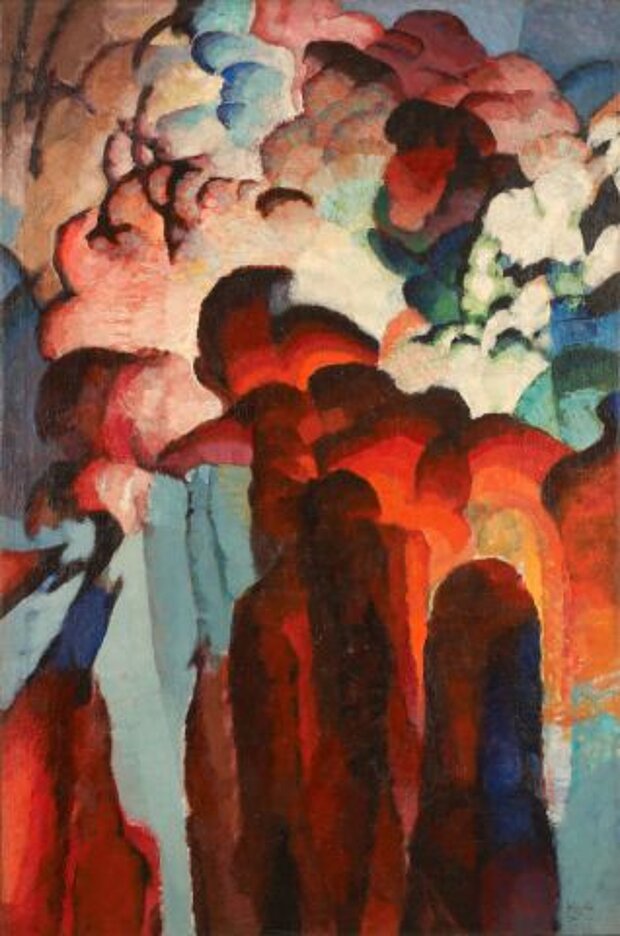
Kupka, František
Essai Robustesse
1920

© mumok
| Object description | Oil on canvas |
|---|---|
| Object category | painting |
| Material |
image carrier:
canvas
Painting layer:
oil paint
frame:
wood
|
| Technique |
object:
oil paintings
|
| Dimensions |
object size:
height: 150 cm,
width: 100 cm,
depth: 2,5 cm
frame dimension:
height: 193 cm,
width: 143 cm,
depth: 6 cm
object:
weight: 26 kg
|
| Year of acquisition | 1993 |
| Inventory number | B 789/0 |
| Creditline | mumok - Museum moderner Kunst Stiftung Ludwig Wien |
| Rights reference | Bildrecht, Wien |
| Further information about the person | Kupka, František [GND] |
| Literature | Laboratorium Moderne/Bildende Kunst, Fotografie und Film im Aufbruch |
Born in Bohemia, František Kupka received his art education in Prague and Vienna. In 1895 he moved to Paris. He earned his living by drawing and making caricatures. When he moved out to Puteaux, on the edges of the city, he got to know a circle of painters amongst whom were Marcel Duchamp, Fernand Léger, Robert Delaunay, and Jacques Villon. Frantisek Kupka’s interests were in occult phenomena and the natural sciences. Their development at the beginning of the 20th century was rapid and called into question all the previous certainties about reality: just as the natural sciences made invisible realities visible, Kupka avoided representational painting and used the surface of his pictures as sites for experiments in design and perception. Employing colours and forms Kupka created force fields and motional pathways such as in “Essai Robustesse” from 1920 in which the depiction is characterized by dynamism, rhythm, and an upwards movement. Taking into consideration the challenges of modernity, Kupka wrote in 1913, that all sense had to be mobilized when viewing his works.
© mumok – museum moderner kunst stiftung ludwig wien